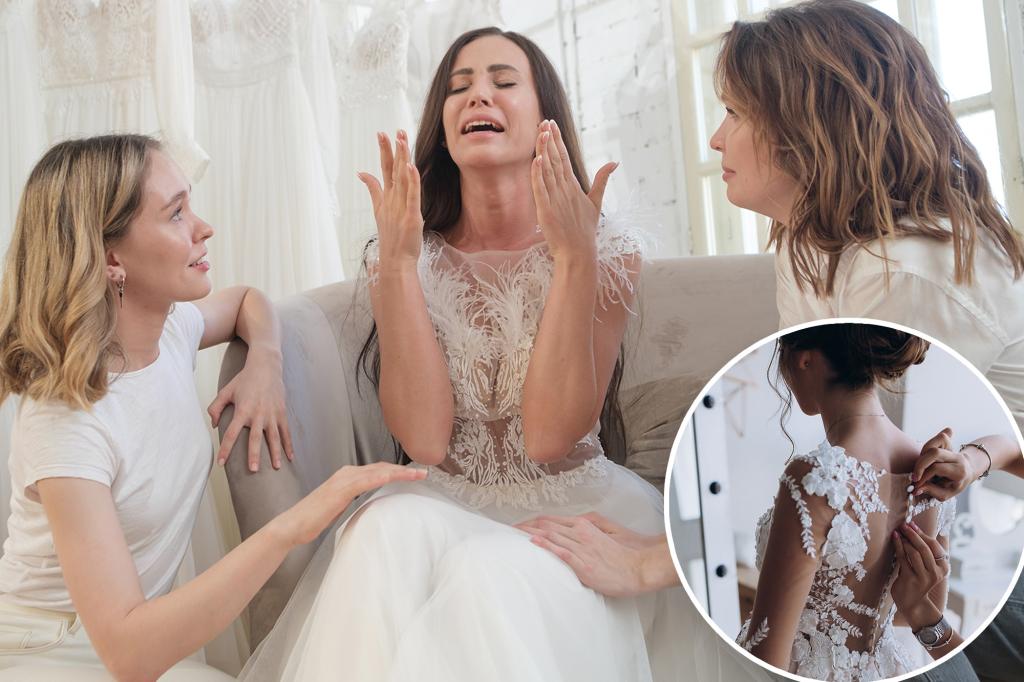When Wedding Plans Turn Financially Fraught: The Rise of Bridezilla Demands
The world of weddings has always been a delicate balance of tradition, friendship, and celebration. Yet, in recent times, social media has exposed a concerning trend of financial demands that push the boundaries of reasonable expectations. One particularly jarring example recently surfaced on Reddit’s r/bridezillas forum, where a distressed bridesmaid shared how her friend—the bride—had suddenly demanded each bridesmaid contribute $500 toward her “dream” wedding dress. What made this request especially troubling was the short notice—just three weeks before the wedding—and the bride’s insistence that this financial obligation was “non-negotiable.”
“Some of us have budgets, and this feels completely unreasonable,” the bridesmaid wrote, seeking advice on handling the situation without creating unnecessary drama. The Reddit community responded with overwhelming support for the bridesmaid, with many suggesting she simply withdraw from the wedding party. “Bow out of the wedding,” urged one commenter, while another added, “People, I’m begging you: stop going along with ridiculous requests (or in this case, demands). If everyone stops, we’ll have a lot fewer ridiculous requests.” Others suggested a more diplomatic approach, recommending she explain that she would be more comfortable attending as a guest rather than remaining in the bridal party. The underlying sentiment was clear: this unexpected financial demand likely represented just “the tip of the iceberg” for this particular bride’s problematic behavior.
The community’s reaction highlighted the fundamental issue at stake: the bridesmaid dress request violates long-standing wedding etiquette. Traditionally, bridesmaids are expected to purchase their own attire and perhaps contribute to pre-wedding celebrations like bridal showers or bachelorette parties. However, the bride’s wedding dress has always remained firmly in the category of expenses covered by the bride herself or her family—never the bridesmaids. As one commenter bluntly put it: “How entitled do you have to be to ask your bridesmaids, who are already going to be spending a shit-ton of money on wedding-related expenses, to contribute to YOUR dream wedding dress fund?! This demand REEKS of narcissism.” This perspective captures the frustration many feel when witnessing the transformation of what should be a celebration of love into a financial burden for friends.
Beyond financial impositions, another troubling wedding trend involves brides selecting their bridal party based not on meaningful relationships but on calculated aesthetic considerations. In another Reddit post that sparked considerable debate, a woman revealed that her sister had chosen bridesmaids specifically because they were “awkward” or “not photogenic,” deliberately excluding her actual close friends. When confronted about this strange selection, the bride candidly admitted, “You’ll understand when it’s your wedding. You don’t want people who’ll outshine you in your own pictures.” This confession revealed a disturbing prioritization of wedding aesthetics over authentic relationships, reducing friends to mere props in a photo opportunity rather than honored participants in a significant life event.
The community’s reaction to this revelation was one of unanimous disapproval, with many commenters calling out the bride’s behavior as “mean girl” tactics. “Yes, she deserves to feel beautiful on her special day, but she’s ugly on the inside for doing this, even if no one else knows,” wrote one particularly incensed Reddit user. This sentiment captures the central ethical dilemma: while a wedding is indeed the couple’s special day, using it as an opportunity to manipulate or exploit friends fundamentally contradicts the spirit of what weddings are meant to celebrate—love, community, and the joining of lives and families.
These stories highlight a broader cultural conversation about the evolving nature of weddings in contemporary society. While social media and wedding industry marketing have dramatically raised expectations for the “perfect” wedding day, they’ve also created pressure that sometimes leads to questionable decision-making. The phenomenon of the “bridezilla”—a term that, while gendered, captures the essence of someone whose wedding planning crosses into unreasonable territory—points to how the stress and societal expectations surrounding weddings can sometimes bring out challenging behaviors. However, most wedding planners and etiquette experts agree that maintaining perspective is crucial: a wedding represents the beginning of a marriage, not simply a photographic opportunity or status symbol.
The fundamental question these stories raise is about values and priorities. When a bride demands financial contributions for her dress or selects bridesmaids based on ensuring she outshines them, she’s revealing that her priorities lie with appearances rather than relationships. As wedding costs continue to rise and expectations become increasingly elaborate, it’s worth remembering that the most meaningful weddings are those that honor authentic connections rather than imposing financial or emotional burdens on loved ones. After all, when the flowers have wilted and the photographs have been stored away, what remains are the relationships that were either strengthened or damaged in the process. Whether it’s asking bridesmaids to fund a dream dress or strategically selecting less photogenic friends to stand beside you, these bridezillas are ultimately saying “I do” not just to their partners, but to unnecessary drama that undermines the very purpose of gathering loved ones to celebrate a union.


